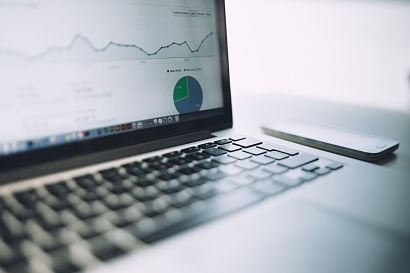
Following their work leading the Energy Data Taskforce for the UK Government last year and the further Energy Data Best Practice project in the interim, the Catapult is developing a comprehensive assessment framework for measuring the digital readiness of energy sector businesses - akin to technology readiness levels.
The Catapult is planning to carry out two pilots this summer – providing two organisations with assessments of their Digital Energy Fitness (DEF) – before making the service more widely available later this year.
The DEF assessments were developed as part of the Innovating to Net Zero programme, supported by InnovateUK. The programme modelled potential pathways towards the UK’s 2050 carbon target and identified the key innovation priorities for the UK, highlighted in its recent Innovating to Net Zero report. In addition, the Catapult also carried out deep dives into the potential of different technologies – such as nuclear, storage and flexibility – including the markets, policies and regulations needed to support innovation in these areas.
The latest deep dive report, Digitalisation for Net Zero, assesses the potential of digital technology to transform the energy system, including real-world case studies being developed by UK innovators.
The report also outlines the new DEF offering, which measures digital readiness in five categories:
Digital Infrastructure
Technology
Operations
Insight & Value-Add
Culture
The Catapult recently identified 212 innovative UK businesses currently demonstrating the enormous potential of digital technology and data to help the energy system Innovate to Net Zero.
“The Digital Energy Fitness assessments being developed will benefit many energy sector companies – from established players to innovative challengers – giving organisations a better understanding of their digital capabilities and how they can capture the clean growth opportunity” said Energy Systems Catapult data systems practice manager, Dr Richard Dobson. “In our view, the complexity and scale of integrating the multiple technologies and solutions needed to meet Net Zero will not be possible without digitalisation of the energy system. Without data sharing and digitalisation – effective system planning and operation of growing renewable generation and distributed technology – whether on a national or local level, is near impossible”.
Mr Dobson added that data will be the lifeblood of this more digitalised energy system, helping to inform decisions on personal consumption choices with heating, transport and entertainment, to planning investments in generation assets or network upgrades, through to enabling the energy system to function at lowest carbon and cost, which in turn supports the UK economy. Improving Digital Energy Fitness will help organisations to unlock both significant societal benefits – lower costs, lower carbon and a more secure energy system – but also create significant commercial opportunities such as those identified by the 212 digital innovators.
Other topics covered in the report include the many opportunities for digitalisation to improve the functioning of the current energy system and enable the solutions which will help meet the Net Zero target. While much of the value from digitalisation relates to electricity, there are opportunities across electricity and gas with applicability to heat, transport, and other energy vectors.
For additional information:

